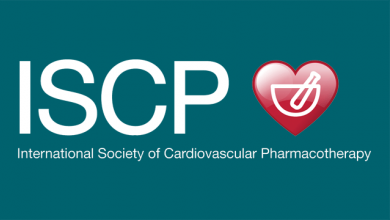Search results
Author(s):
Fernando Worner
,
Cristina Marzo
,
Kristian Rivera
,
et al
Added:
3 years ago
Topic: 1. Clinical Cardiology
Introduction
Universal use of Directs Oral Anticoagulants (DOACs) in non valvular atrial fibrillation (nVAF) is not possible for economic reasons. Therefore, it is mandatory to guarantee their prescription of these drugs in patients theoretically most benefited.
Objectives
To review indications and results of one territorial, prospective and centralized…
View more
Joan Antoni Schoenenberger
Research Area(s) / Expertise:
Author
Author(s):
Kristian Rivera
,
Cristina Marzo
,
Nuria Sans
,
et al
Added:
3 years ago
Topic: 1. Clinical Cardiology
Introduction
Universal use of Direct Oral Anticoagulants (DOACs) in non-valvular atrial fibrillation (nVAF) is not possible for economic reasons. It is necessary to prescribe them to those patients with greater potential benefit. The best way to achieve this objective is the application of a territorial protocol, designed and accepted by all professionals…
View more
Author(s):
L Nelson Hopkins
Added:
3 years ago
At least 795,000 people suffer a new or recurrent stroke each year in the US.1 Every 40 seconds, someone in the US has a stroke, and stroke is the third leading cause of death in the US.1 These numbers are likely to increase as the US population ages and as stroke awareness increases. In the past, ischaemic stroke has been managed with palliation and rehabilitation and with prevention of the…
View more
Author(s):
Jeffrey Testani
Added:
4 years ago
Dr Jeffrey Testani (Yale School of Medicine, New Haven, Connecticut, US) discusses the Zero Sodium Peritoneal Dialysate Protocol Pilot Study –First in human experience with direct sodium removal using a zero sodium peritoneal solution: A new candidate therapy for volume overload.
Filmed on site at HFA 2019 by Radcliffe Cardiology.
Videographer: Mike Knight
Interviewer: Liam O'Neill
View more
Author(s):
V Popov
,
R Brands
,
N Bulanova
Added:
3 years ago
Type 2 diabetes (T2D) affects 5.3% of the world’s population and has a huge impact on healthcare costs, morbidity and mortality. Low-grade chronic systemic inflammation results in complications, such as retinopathy, end-stage renal disease, diabetic wounds and pregnancy complications. Alkaline phosphatase (AP) supplementation restores insulin and blood-lipid chemistry in preclinical models. A…
View more
Author(s):
Pablo Del Castillo-Vásquez
,
Núria Casanovas
,
Marcel Santaló-Corcoy
,
et al
Added:
3 years ago
Topic: 2. Ischemic Heart Disease
Introduction and Objectives
Pharmacologic cardiac stress SPECT (PS-SPECT) is recommended for non-invasive evaluation of ischemic heart disease (IHD) in patients unable to exercise. Drugs used for stress in our centre are Dipyridamole (DIP) and Dobutamine (DBT). DIP can be associated to exercise (ex-DIP). The objective of the study is to evaluate the diagnostic…
View more
Author(s):
Marc E Wolf
,
Michael G Hennerici
Added:
3 years ago
Aetiological Classification of Stroke
Precise analysis of stroke subtypes is important for clinical treatment decisions and prognostic evaluation of patients leading to adapted individual patient management. The most widely used system of aetiological ischaemic stroke classification is the Trial of Org 10172 in Acute Stroke Treatment (TOAST) classification, proposed in 1993 for an acute stroke…
View more
Author(s):
Jean-François Paul
Added:
3 years ago
In the clinical management of patients with complex congenital heart disease (CHD), accurate 3D evaluation of their morphological conditions is critical. 3D imaging should demonstrate the shape and spatial relation of great arteries, proximal branch pulmonary arteries and anomalous pulmonary venous or systemic connections, and eventually coronary artery course. 3D information on extra-cardiac…
View more
Cordiam Webinar 2021
Author(s):
Serge Boveda
Added:
2 years ago
Video Series













